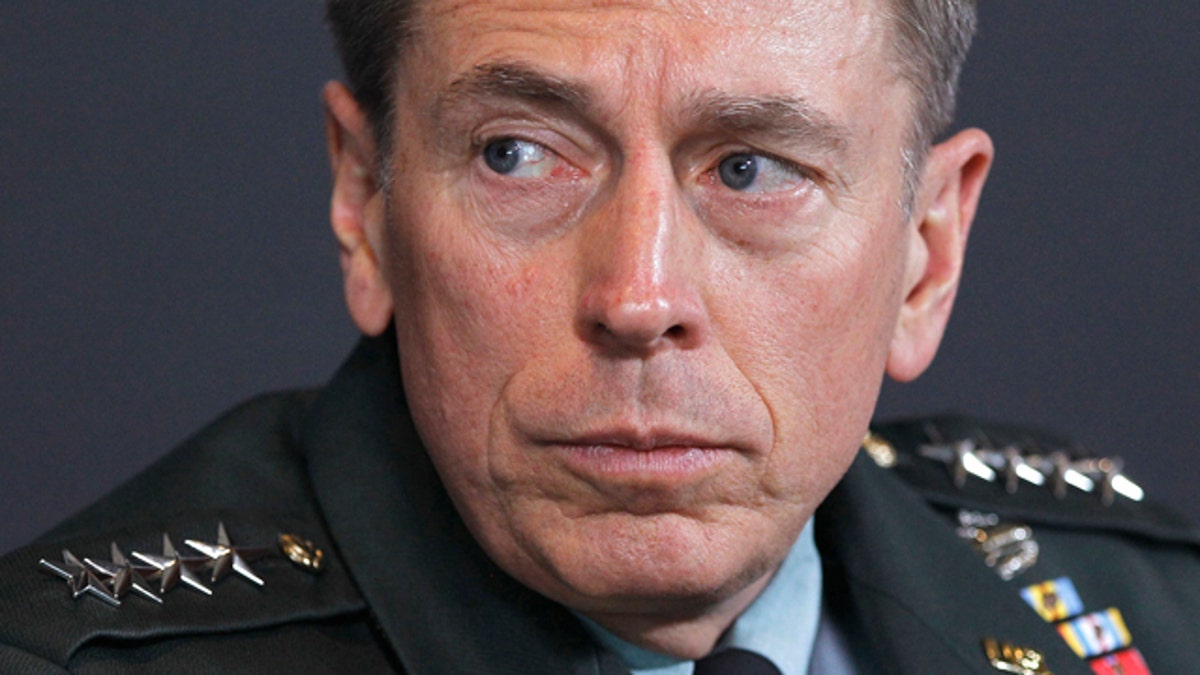
Gen. David Petraeus (AP)
President Obama is facing two pivotal war decisions this summer, moves that will no doubt be replayed when the presidential campaign kicks into full gear.
In Iraq the White House is under pressure to reach an agreement with Prime Minister Nouri al-Maliki's government to keep some residual U.S. force in the country beyond the current deadline that calls for all U.S. troops to be out by the end of 2011.
In Afghanistan the president is looking to make good on his commitment for a "meaningful withdrawal" of U.S. combat forces in July, less than one year after the last of his 30,000 surge troops arrived.
General David Petraeus, top commander in Afghanistan -- who arrived in Washington Thursday to accept his nomination to be Director of the CIA -- will spend time with Defense Secretary Robert Gates to discuss options for troop withdrawals. Military and defense officials say this is just the beginning of the decision process and that Petraeus is not carrying any formal recommendations with him.
Aides close to Petraeus say he is keeping his proposals very closely held. One official went as far as to say, "he's working this issue by himself."
Former National Security Adviser K.T. McFarland says President Obama needs this July drawdown for political reasons at home and overseas.
"This is a message for many audiences,” she said. “They want to send a message to President Karzai and the Pakistanis that we're not going to be here forever and you need to learn how to ride the bike yourself."
Then there's the war in Iraq which the President has promised to end.
Announcing his new war strategy shortly after becoming president in 2009 President Obama said, "under the Status of Forces Agreement with the Iraqi government, I intend to remove all U.S. troops from Iraq by the end of 2011."
Now the Pentagon is pressing the Iraqis to request some of the 47,000 US forces currently in Iraq to stay, a point driven home to Iraqi leaders during the Chairman of the Joint Chiefs trip to Baghdad last week.
"Should Iraq’s government desire to want to discuss potential for some troops to stay I'm sure my government will welcome that dialogue,” Admiral Mike Mullen said. “But it needs to start soon, very soon should there be any chance of avoiding irrevocable logistics and operational decisions we must make in the coming weeks."
General Lloyd Austin, the top U.S. general in Iraq, is pushing for at least 22,000 troops to stay, according to Pentagon sources. The White House wants less than 10,000. Secretary Gates reportedly feels it is increasingly important to leave a strong U.S. presence in Iraq to counter Iran's rising influence as a result of the "Arab Spring" in which anti-government demonstrations have taken place in several countries throughout the region.
The debate about whether or not U.S. troops stay is now entirely between the Iraqis. One major complicating factor in Iraqi parliament is that Muqtada al-Sadr, the leader of a violent Shiite militia during the Iraqi insurgency, has threatened to activate his Mehdi Army if U.S. troops stay.
These troop withdrawal decisions will be made just as President Obama reshuffles his national security team. At a ceremony in the East Room of the White House late Thursday President Obama formally announced that CIA Director Leon Panetta with replace Secretary Gates at the Pentagon and Lt. Gen. John Allen will replace General Petraeus in Afghanistan.
Retired General and Fox News military analyst, Bob Scales, says the decisions have a clear purpose when it comes to Afghanistan.
"This is a dream team for getting out of the war," Scales said. "Everyone he has chosen is a part of his team -- they agree with the strategy -- and they are focused on the real challenge of drawing down the military after a war which is principally focused on lowering the defense budget."
Notably absent in the White House announcements Thursday was the president's pick for the next Chairman of the Joint Chiefs of Staff when Admiral Mullen's term ends in October. Several Capitol Hill and Pentagon sources say the nomination of General James Cartwright is being held up by Senators with concerns about his lack of combat service and a recent investigation into the General's personal life and an impending divorce. But, sources say he remains the President's first choice.

